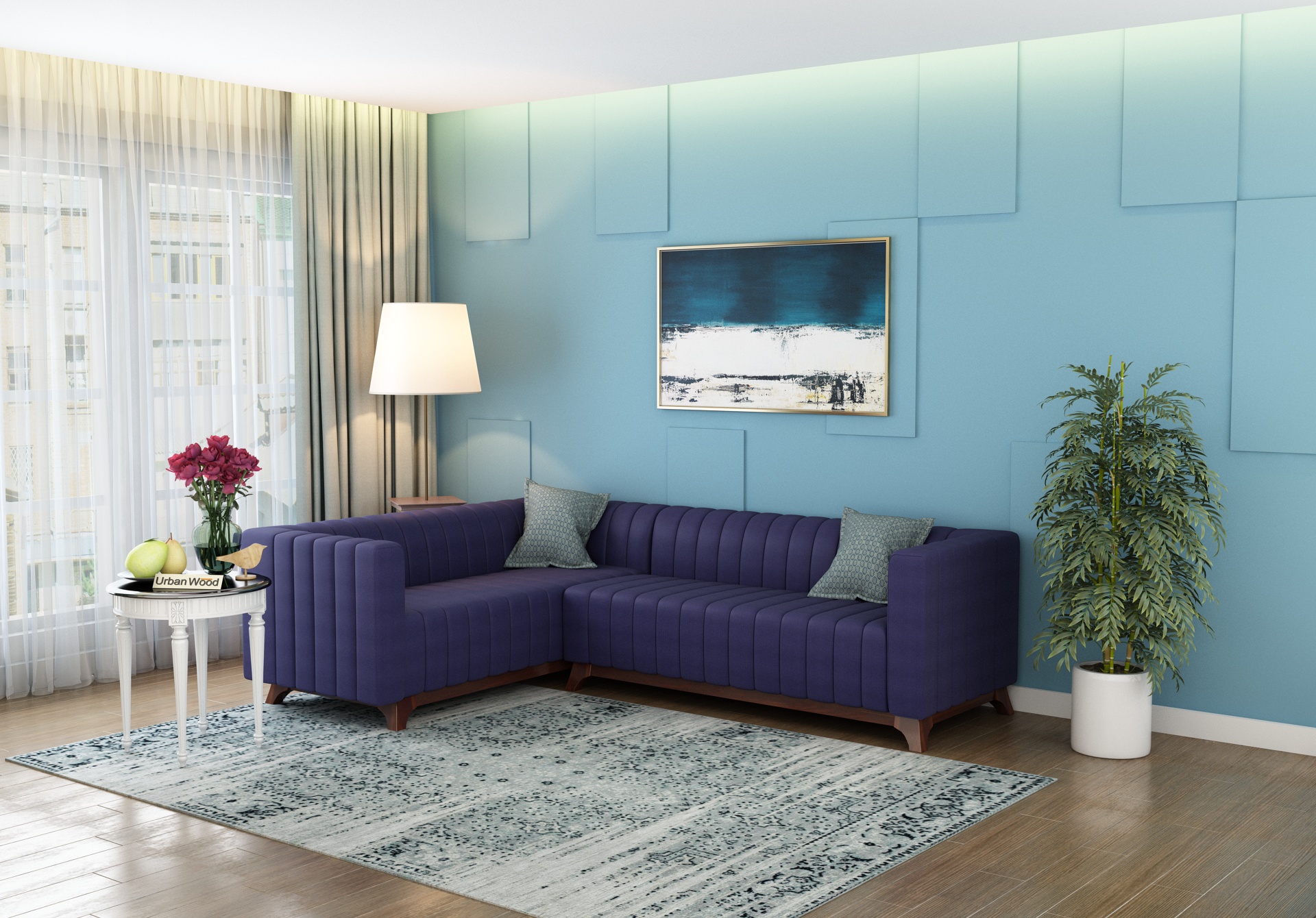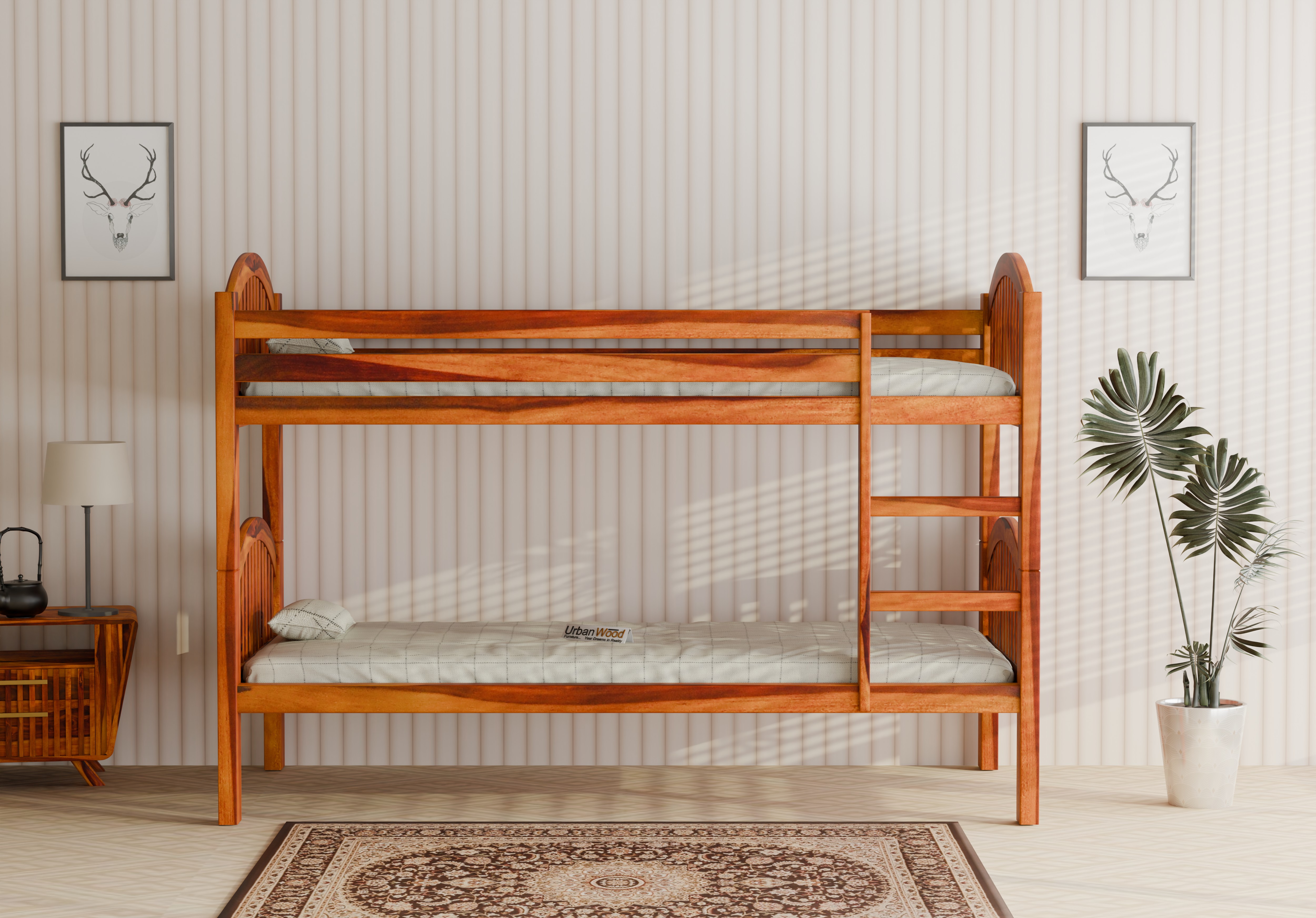.png)
Homes are living stories. They evolve. And lately, Indian homes are being quietly transformed by global furniture trends. However, it’s not just about imitating Western styles; the charm lies in blending innovation with context, heritage, and climate. Below are some key global trends and how they are influencing and shaping the heart of homes across India.

Planet Friendly Home: Embracing Sustainably Green And Circular Designs
Global Trend
Across the global sphere, new furniture design is leaning toward sustainability and conscious living. Eco-friendly materials, cradle-to-cradle designs, and reuse are no longer just buzzwords; they’re becoming industry standards. Brands are increasingly turning to reclaimed wood, recycled metals, bio-composites, and low-VOC finishes.
The revival of modular furniture systems is also gaining traction, allowing people to reduce waste while enjoying versatile designs that adapt to changing lifestyles.
Reflection in Indian Artistry
In India, this global style transition blends beautifully with heritage-inspired artisanships. Many artisans have long been giving new life to old wooden beams, salvaged temple wood, and antique furniture pieces.
We can expect to see more natural, renewable materials, like bamboo, rattan, and upcycled teak, shaping modern homes. Smaller, modular pieces will become more common, offering the flexibility to transform a study into a cosy guest nook or a corner into a workspace.
Looking ahead, Indian brands may even launch buy-back or refurbishing programs for older furniture, embracing circular economics and ensuring timeless designs never go to waste.
Tips For Indian Homes:
Seek FSC-certified or sustainably sourced woods.
Choose finishes with low chemical emissions (better indoor air).
When buying, imagine future reuse or modular expansion.
The Bespoke Revolution: Redefining The Modern Interior Transition
Across the world, mass production is gently giving way, and custom-made furniture is on the rise. Today’s homeowners want furniture that feels uniquely theirs, custom sizes, finishes, configurations, and even textures that reflect their lifestyle and space. It’s less about one-size-fits-all and more about pieces that blend seamlessly into individual homes.
In India, this global shift feels like a natural extension of our own heritage. For centuries, carpenters and artisans have crafted furniture tailored to room proportions, window placements, and even local climates.
That tradition of customized furniture is finding new relevance today, as boutique brands and skilled makers respond to the rising demand for made-to-order furniture, artistic pieces designed not just for a house, but for the way each family lives in it.
Tips for Indian Homes
Don’t settle for standard sizes; get furniture that fits your floor plan.
Ask for modular builds (sections that can be moved or reconfigured).
Blend custom work with ready-made for cost control.

The Rise of Multi-Tasking Furniture in Contemporary Interiors
Furniture is no longer just static; it’s getting smarter, more interactive, and attractive. From desks with wireless charging to sofas with built-in lighting, from bed design with hidden storage to sensor-enabled tables, designs are evolving to add both function and convenience. Homes are leaning toward furniture that not only looks good but also works harder for modern lifestyles.
India’s Takes On The Trend
In the essence of every modern Indian dwelling, where every square foot matters, multi-functional furniture is becoming a natural choice. Imagine a bed that lifts to reveal extra storage, or innovative dining table sets that easily transform into a work desk, perfect for compact city living.
Going forward, expect to see more smart features like integrated lighting, motion sensors, and modular plug points built right into furniture, making homes not just stylish, but also intuitive and efficient.
Tips for Indian Homes
Ensure the smart components are serviceable (for repair/upgrade).
Keep wire management hidden but accessible.
Choose smart integrations that genuinely add utility, don’t overdo gadgets for novelty.
Biomorphic and curved forms, bringing interiors alive with style
Global Trend
Around the world, straight lines are giving way to softer, more organic shapes. Furniture is embracing curves, fluid silhouettes, and natural forms. Undulating sofas, rounded chair backs, and asymmetric tables are redefining the modern aesthetic. These designs bring a sense of movement and warmth, making interiors feel more inviting and alive.
These biomorphic shapes often echo nature itself, blending beautifully with greenery and indoor plants, creating homes that feel both contemporary and calming.
Tips for Indian Homes
Use curved furniture in smaller rooms to improve flow.
Combine curves with angular elements (for balance).
Use upholstery or finishes that highlight the shape (e.g., vertical seam lines, contrasting trim).

Textured Surfaces and Decorative Craftsmanship Redefine Interior Art
The reign of ultra-minimalism is softening, giving way to a renewed love for texture and detail. Designers are reintroducing fluted panels, ribbed finishes, embossed patterns, carved surfaces, and even hand-painted motifs. These tactile touches add depth, personality, and a sense of artistry, transforming furniture into statement pieces that are as much about feel as they are about form.
The Influence On Indian Craftsmanship
For India, this revival feels like second nature. Our rich legacy of wood carving, intricate inlay, jali work, and hand-done surface detailing has always celebrated craftsmanship. Today, these traditions are being reimagined in contemporary ways, such as a bedroom wardrobe door with subtle fluted detailing, a wood console table enhanced with carved panels, or a dining table adorned with delicate hand-detailed accents.
Such pieces strike a beautiful balance between heritage and modernity, offering a hint of Indian artistry while still complementing clean, minimalist interiors.
Tips for Indian Homes
Use texture selectively (e.g. one accent wall, the headboard, or a cabinet).
Match texture with light: relief work looks better in directional light.
Balance textured items with smooth surfaces, such as glass, metal, or plain laminates, to avoid overbusyness.
Wrapping Up!
The global furniture scene is pushing toward sustainability, better design intelligence, texture, and personalisation. The exciting thing for India is that many of these directions resonate with what's already ingrained here: craftsmanship, flexibility, local materials.
If you’re designing or renovating, use these trends as nudges, not prescriptions. See what fits your climate, your space, your story, and let the furniture be an expression of that.